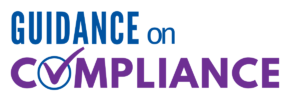New Surveyor Guidance is in effect and indicates that mental health disorders in nursing home facilities need to be diagnosed by a medical practitioner. Evidence-based criteria and professional standards, such as the current version of the Diagnostic and Statistical Manual of Mental Disorders (DSM), must be used and supported by documentation in the resident’s medical record.
Diagnoses such as Schizophrenia and schizoaffective disorder require supporting documentation such as a DSM assessment, like all other mental health diagnoses. Residents diagnosed with schizophrenia or schizoaffective disorder may be misdiagnosed based on the psychotropic medication that they are taking. It is imperative that documentation is present to ensure that antipsychotic medications are used appropriately, residents and families are informed and part of the decisions, and the staff are properly trained to manage resident behaviors
The nursing home is responsible for tracking down the history of the residents’ diagnosis: Where and when were they diagnosed, and who prescribed the medications? It is the expectation that the nursing home that is accepting the resident will find and maintain the supporting documentation with evidence of the psychiatric diagnoses. There must be evidence of an active diagnosis. It may be helpful to the Interdisciplinary Team, including the provide,r that this research takes place before the resident arrives to ensure regulatory compliance with the Centers for Medicare & Medicaid Services (CMS).
Upon admission the supporting documentation should include a Preadmission Screening and Resident Review (PASRR), facility attempts to obtain documentation regarding the mental health diagnosis from a previous provider, validation of the residents mental health diagnosis by the practitioner in accordance with professional standards of practice (reviewing information available in the medical record and/or information from a previous provider), discussions with the resident or resident representative, a comprehensive evaluation and if needed a psychiatric consult along with their determination of the residents’ diagnosis.
Supporting documentation must include the residents’ mental, behavioral, and physical conditions, comorbidity conditions, and psychosocial status. It must rule out physiological effects of a substance, whether medication or drugs, or other medical conditions. Documentation must be present in the record and provide indications of distress, changes in functional status, resident behaviors, symptoms, and complaints.
A resident who has a mental health disorder must have documentation in their medical record that contains their symptoms, the behaviors consistent with DSM criteria, and must reflect the period of time in accordance with the DSM criteria.
A diagnosing practitioner must document that a diagnosis was determined based on a comprehensive assessment done during the practitioner’s visit with the resident. Symptoms, behavioral disturbances not ruled out by the effects of a substance or other medical conditions must be captured in the resident’s record. Documentation of the effect on the resident’s self-care, interpersonal relationships, and other functions in comparison to the disturbance onset is required.
Understanding and abiding by this guidance is imperative to meet both regulatory and clinical compliance, as well as addressing the Quality Measures. Nursing home staff must understand that appropriate mental health diagnoses and psychotropic indication for use affect Quality Measures.
Documentation of mental health diagnoses must have supported documentation evident throughout the resident’s record, ensuring residents receive appropriate care tailored to their needs. Regular, thorough record reviews are essential to ensure compliance with 42 CFR Standards. Record reviews provide an opportunity to verify accuracy and ensure proper documentation is captured. Would you like help ensuring your resident records are accurate? Do you need help with developing procedures for compliance with 42 CFR standards?
LW Consulting, Inc. (LWCI) offers services to support clinicians, practices, and organizations with general compliance audits, documentation audits, and CPT and diagnosis-focused audits, compliance advisory engagements, exclusion checks, appeals for federal and insurance audits, and more. LWCI can also help review or develop policies and procedures, as well as provide training to ensure accurate documentation practices. Contact us today for more information.
LWCI offers a comprehensive range of services that can assist your organization in maintaining compliance, identifying trends, providing education and training, or conducting documentation and coding audits. For more information, contact LWCI to connect with one of our experts!


